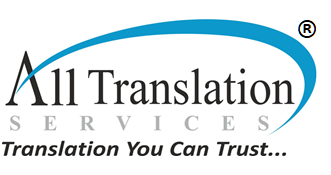Understanding the Different Types of Translations: Certified, Notarized, Sworn, and Official
Whether you’re expanding your business internationally, applying for work or study abroad, or dealing with foreign legal proceedings, understanding the distinctions between certified translations, notarized translations, sworn translations, and official translations is crucial.
Each type serves a specific purpose and carries a different level of authority and recognition. This blog aims to demystify these terms and help you determine which service you need for your documents.
What is Certified Translation?
A certified translation is a document translated by a professional translator or translation company and accompanied by a signed statement attesting to the accuracy and completeness of the translation. This certification confirms that the translation is a true representation of the original document.
Certified translations are often required for official documents such as birth certificates, marriage certificates, academic records, and legal documents when they are to be used in formal proceedings or for official purposes in a foreign country.
The key feature of a certified translation is the translator’s declaration of accuracy, which does not necessarily involve any third-party verification by a governmental authority or notary. However, the translator or translation agency must be recognized as competent and credible.
What is Notarized Translation?
Notarized translations add an extra layer of verification to the process. In this case, the translator or the person who has performed the translation appears before a Notary Public and swears to the accuracy of the translation. The Notary Public then notarizes the translator’s signature, providing a legal acknowledgment that the signature is genuine.
It’s important to note that the notarization process does not attest to the accuracy of the translation itself but rather to the identity of the person signing the document.
Notarized translations are often required for educational documents, corporate filings, and legal documents that need to be submitted to authorities which require notarization as a form of legal verification.
What is Sworn Translation?
Sworn translations, also known as “official” or “legal” translations, are performed by a translator who has been officially authorized by a governmental body to translate and certify documents. The process and requirements to become a sworn translator vary by country. In some jurisdictions, sworn translators may affix a seal or stamp to the translation, which signifies that the document is a legal and official translation.
Sworn translations are typically required for legal proceedings, including court documents, immigration documents, and any other instances where the documents need to be legally binding. The status of a sworn translator and the legal validity of their translations are specific to the legal system of the country in which they are recognized.
What is Official Translation?
The term “official translation” can sometimes be used interchangeably with “certified translation,” but it generally refers to any translation that is recognized or endorsed by an official body. This could mean a translation provided by a sworn translator or a translation that has been certified or notarized depending on the context and the specific requirements of the requesting authority.
Official translations are required for a wide range of purposes, including but not limited to immigration, legal proceedings, and the submission of official documents to governmental bodies.
Choosing the Right Type of Translation
The type of translation you need depends on the purpose of the document and the requirements of the institution or authority requesting it. It’s essential to:
Clarify the Requirements: Always check the specific requirements of the receiving authority or institution.
Seek Professional Advice: Consult with a professional translation service provider who can guide you on the most appropriate type of translation for your needs.
Consider the Jurisdiction: Remember that the acceptability of certified, notarized, sworn, or official translations can vary significantly from one country to another.
In conclusion, while the terms may seem confusing at first, understanding the distinctions between certified, notarized, sworn, and official translations is key to ensuring your documents meet the necessary legal and formal criteria. By carefully selecting the right type of translation service, you can navigate international legalities and bureaucracies with confidence.
